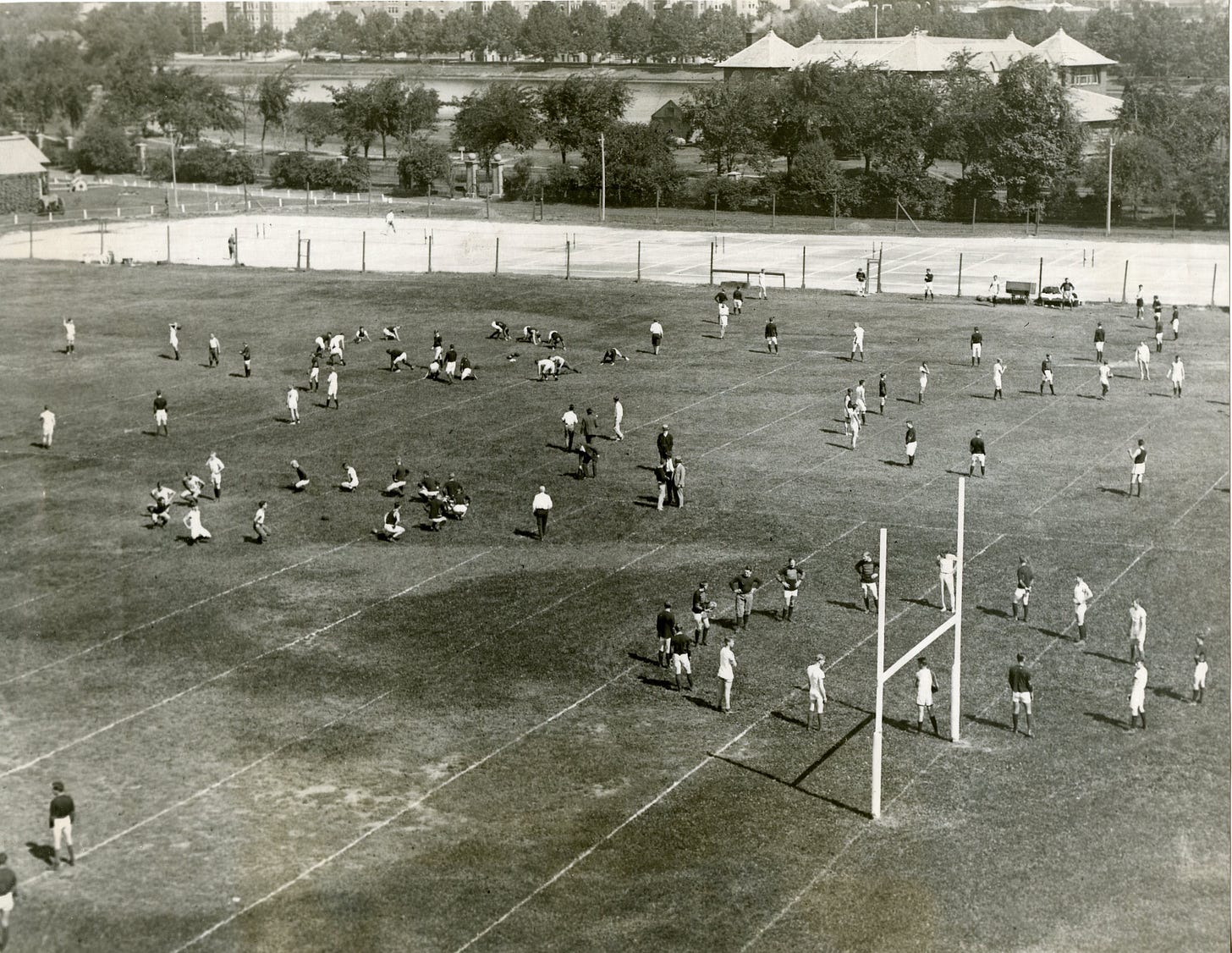Terminology... Two-A-Days
This is article #20 in a series covering the origins of football’s terminology. All are available under the Terminology tab above. My book, Hut! Hut! Hike! describes the emergence of more than 400 football terms.
Few football terms combine a sense of joy and horror as does “two-a-days.” The term brings delight and optimism in that every team begins practice anticipating a winning season, but the start of practice comes with the knowledge that difficult times on dusty fields are ahead.
Unlike some football terms, there is little mystery about the term since it simply refers to teams undergoing two daily practices.
The first mentions of teams practicing twice a day appear just before the forward pass became legal when Harvard’s 1904 preseason schedule included “two sessions a day.” Trinity held two practices daily in 1905, but Harvard seems to have been the only school to consistently gain attention for their double sessions until Cornell stepped up in 1913.
Before WWI, preseason practice did not begin until students arrived for classes. However, with training starting September 13 and the Big Red playing an early game (September 29 versus Ursinus), Coach Albert Sharpe thought his Big Red team needed the extra practice. Notably, one of his assistant coaches arrived in Ithaca on the 12th, and his two other assistant coaches arrived on the 13th in time to start practice.
However, it was not until the 1930s that two-a-day was pluralized and shifted from adjective status to a noun. The first two mentions of “two-a-days” in print came one day apart. The first appeared in a description of the Minnesota Gophers practice, while the second gained subhead status in coverage of the Texas Longhorns. It worked out well for the Gophers since they ended the year atop the AP Poll to claim a national championship. On the other hand, Texas went 2-6-1, with one of their losses coming on November 14 at the hands of those Minnesota Gophers.

Football Archaeology is reader-supported. Click here to buy one of my books or otherwise support the site.


